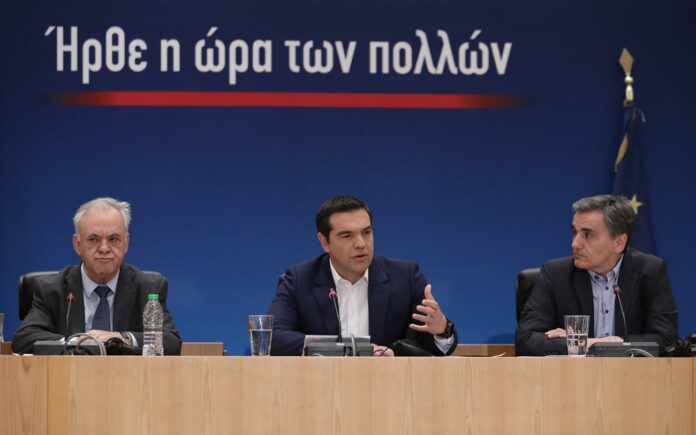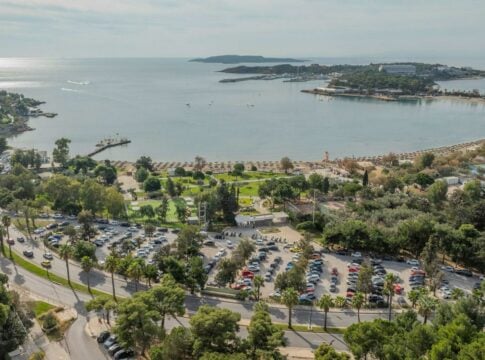Greek Prime Minister Alexis Tsipras abruptly took to the airwaves on Tuesday afternoon to announce a package of tax breaks, pension hikes and lower VAT rates, flanked by a handful of top ministers, and only weeks before his ruling SYRIZA party vies for the European Parliament election and local government polls in every corner of Greece.
The pre-election relief package, announced by a grim-looking Tsipras during a live broadcast carried by the state television network, comes a day after a political furor broke out in the country over Tsipras’ undisclosed family cruise last August on a shipping magnate’s luxury yacht – only a couple of weeks after a deadly wildfire east of Athens proper ultimately claimed more than 100 lives.
In reversing a portion of the “tax tsunami” unleashed by his government in 2016-17 to meet European creditors’ high fiscal targets, the hard left prime minister cited a reduction the VAT rate for the food-&-beverage sector, to 14 percent from the current “Scandinavian” 24 percent, while most groceries will also fall to 13 percent from the punishing high rate of 24 percent.
VAT on energy consumption (electricity, natural gas) will also fall back to 6 percent.
Faced with high single-digit to double-digit percentage point gap between his SYRIZA party and poll-leading main opposition New Democracy (ND) party, Tsipras also promised the re-emergence of a “13th pension” for retirees in the country.
Turning to 2020, a period coming months after a general election must be held no later than October 2019, Tsipras announced the abolition of a so-called “solidarity tax” for middle-class incomes of up to 20,000 euros, and a continued 2-percent tax tacked on the regular tax brackets imposed on incomes of up to 30,000 euros.
In a small “nod” towards Greece’s tax-swamped business community, he pointed to an increase in the rate of amelioration of investments, by an additional 50 percent.
Assuming that he and SYRIZA are re-elected to power, he pointed to an increase in subsidies for social insurance contributions paid for young adults of up to 25 years old, at 80 percent, and 25 percent for people up to 29, essentially a bid to reduce official unemployment among young adults.
He also promised more VAT rate cuts, tax breaks for island residents and lower property tax rates (ENFIA) for islands with less than 1.000 residents. ENFIA was one of the very unpopular taxes that SYRIZA, while in the opposition, promised to fully abolish.
One of the more important measures announced is the re-institution of an income tax deduction for a percentage of annual interest paid on mortgages – a deduction his government had previously abolished. Conversely, a reduction in the tax rate for Greece’s long-foundering and almost dormant farm cooperatives was promised, easing to 10-percent.
In qualifying the timing for the sudden TV announcement, Tsipras said those that bore most of the burdens during the bailout years are now seeing relief, whereas he said the cash to cover the losses in revenue from tax breaks and increased spending for moderate pension hikes comes from a “cheaper exit to the markets” and in over-exceeding fiscal targets, the so-called “fiscal space”.
He also said his government has accumulated an “impressive (cash) reserve of liquidity of 31 billion euros in state coffers”.













